Microfluidics Blog Posts
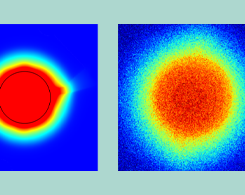
Developing a Silicon MEMS Chip for On-Demand DNA Synthesis
The development of genome editing tools like CRISPR-Cas9 has increased the demand for DNA synthesis technology. Researchers are creating a DNA synthesis platform to broaden horizons in the field.
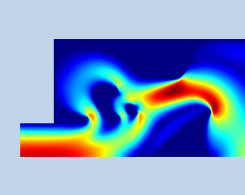
Performing a Shape and Topology Optimization of a Tesla Microvalve
1 Tesla microvalve model, 2 ways: The shape optimization features available in COMSOL Multiphysics enable you to improve simple designs inspired by more complex topology optimization results.

Speeding Up DNA Separation in a Microchannel via Simulation
DNA separation takes a long time using traditional methods. Now, researchers from the Missouri University of Science and Technology have found a faster way to get the job done.
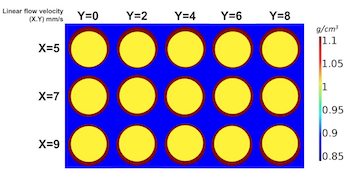
Improving IFE Target Fabrication with a Droplet Microfluidics Method
A common joke is that fusion energy is 30 years away, and always will be. Researchers are using simulation to tackle the challenges involved with of inertial fusion energy target production.

Analyzing a New Droplet-Forming Fluidic Junction with Simulation
A novel oscillatory microfluidic junction design, called a “batwing”, is improving the field of droplet microfluidics by consistently producing uniform and complex double-emulsion droplets.
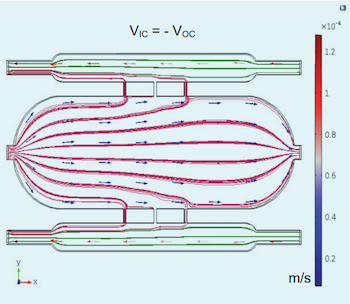
Simulating Cancer Cell Migration in Microgravity with COMSOL®
Researchers used multiphysics simulation to determine how microgravity effects the migration of metastatic cancer cells. Their results could have new implications for therapy and treatments.
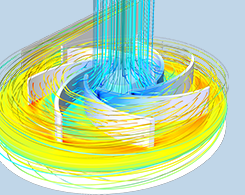
Predict the Performance of Rotating Cone Micropumps with Simulation
Researchers from Texas A&M University used multiphysics simulation to evaluate the fluid dynamics and performance of a rotating cone micropump, a key component in many types of process equipment.
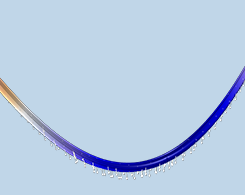
Understand Phenomena in the Viscous Catenary Problem via Simulation
The viscous catenary problem is theoretically and experimentally significant in many industries due to the complex phenomena it entails. Simulation can help us understand this problem.
